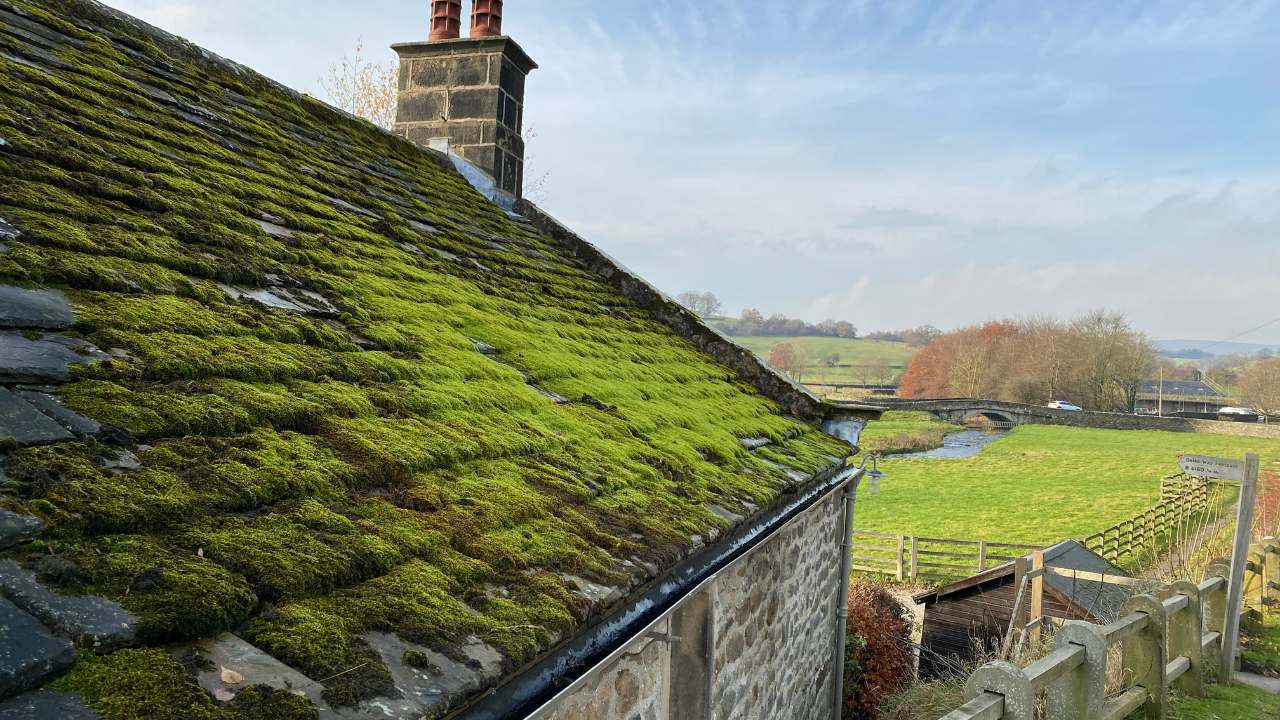As a homeowner, it’s essential to understand the impact of roof moss on your insurance policy. Many people wonder about roof moss insurance questions when they notice growth on their roofs. This article will address these questions and provide insights into maintaining your roof and ensuring adequate insurance coverage.

Understanding Roof Moss and Its Impact
What is Roof Moss?
Roof moss is a type of plant growth that thrives in damp, shaded environments. It can often be seen as green patches on rooftops, particularly in areas with high humidity and rainfall. Moss retains moisture and can cause damage to roof materials if not addressed promptly.
Why is Roof Moss a Concern?
Moss can lead to significant roofing problems. It holds moisture against the roof’s surface, causing shingles to deteriorate over time. This can result in leaks and structural damage, potentially leading to costly repairs. Homeowners should be aware of these risks and take preventive measures.
Insurance Coverage Considerations
Does Home Insurance Cover Moss Damage?
Many homeowners wonder whether their insurance policies cover damage caused by roof moss. Typically, insurance does not cover damages due to neglect or lack of maintenance. However, if moss leads to sudden and accidental damage, such as a leak, the policy might cover the repairs.
What to Ask Your Insurance Provider
When discussing your policy with your insurance provider, consider asking about coverage specifics related to roof moss. Inquire if they cover damage from moss growth and what maintenance practices they require to keep your policy valid.
Preventive Measures and Best Practices
Regular Inspections and Maintenance
To prevent moss-related issues, conduct regular roof inspections. Look for signs of moss growth, especially after rainy seasons. Removing moss early can prevent it from causing significant damage.
Professional Cleaning Services
Hiring a professional cleaning service can be an effective way to manage moss growth. Professionals have the tools and expertise to safely remove moss without damaging your roof. For more information, you can visit Window Genie.
DIY Solutions and Considerations
Safe DIY Methods
Some homeowners opt for DIY methods to remove moss. Using a mixture of water and vinegar or specialized moss-removing solutions can be effective. However, be cautious when working on the roof to avoid accidents.
When to Call a Professional
If moss covers a large area or if you’re unsure about tackling the problem yourself, it’s best to call a professional. They can assess the situation and provide a suitable treatment plan.
Insurance Policy Adjustments
Updating Your Policy
If you’ve recently dealt with moss issues, consider updating your insurance policy. Inform your provider about the steps you’ve taken to maintain your roof. This can sometimes lead to better coverage options or reduced premiums.
Documenting Maintenance Efforts
Keep records of all maintenance and cleaning efforts. Documenting these actions can be beneficial if you need to file an insurance claim related to roof damage.

FAQs
1. How often should I check my roof for moss?
It’s advisable to inspect your roof for moss at least twice a year, particularly after the rainy season.
2. Can moss damage my roof’s structure?
Yes, moss retains moisture and can lead to the deterioration of roofing materials, potentially causing structural damage.
3. Will removing moss myself affect my insurance coverage?
As long as you follow proper safety guidelines and document the removal process, DIY removal should not affect your insurance coverage.
For more insights on handling roof moss, consider reading about roof moss and leaks and the DIY treatment options.
This article contains affiliate links. We may earn a commission at no extra cost to you.






